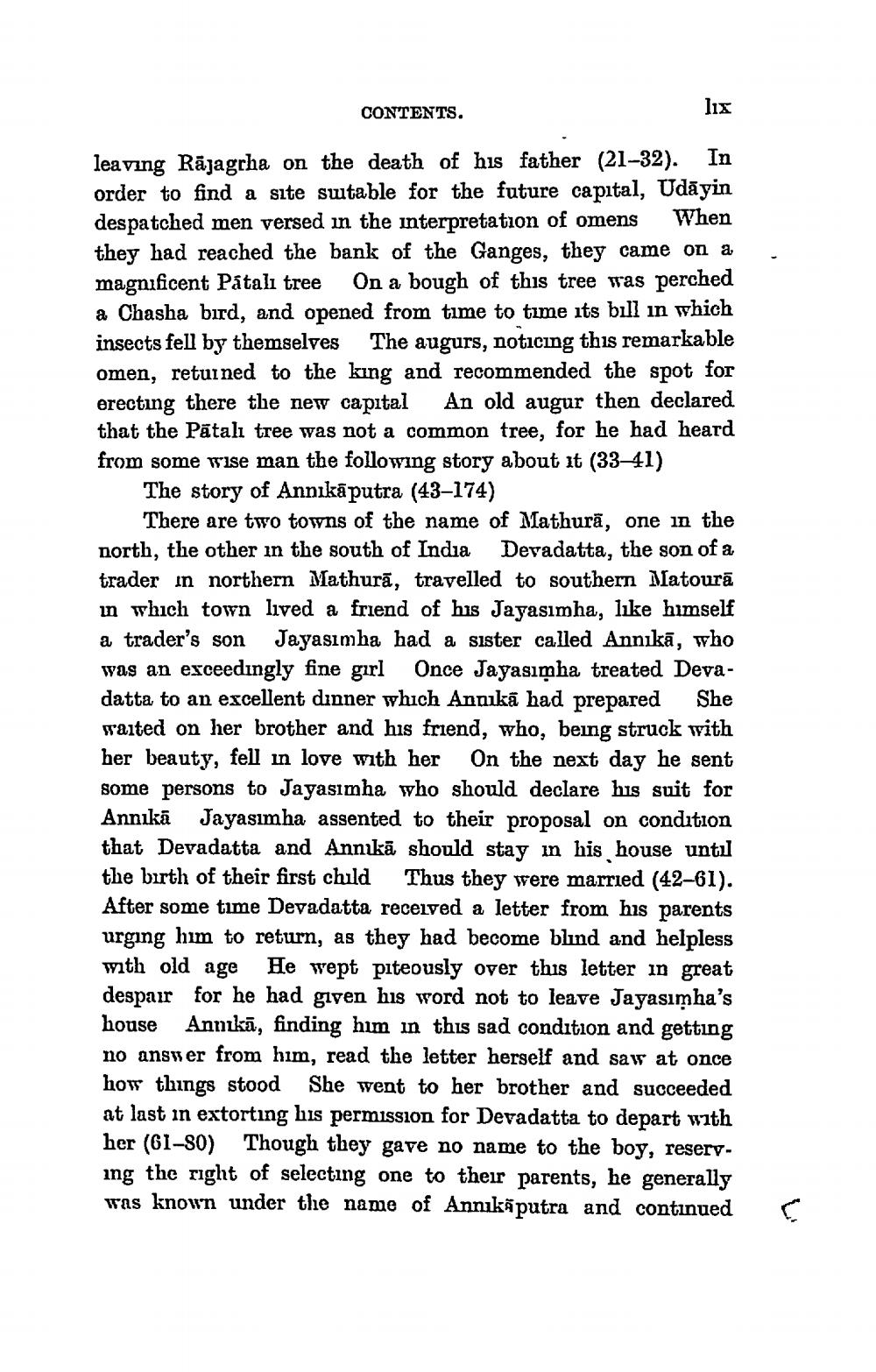________________
CONTENTS.
lix
leaving Rājagrha on the death of his father (21-32). In order to find a site sutable for the future capital, Udāyin despatched men versed in the interpretation of omens When they had reached the bank of the Ganges, they came on a magnificent Pátalı tree On a bough of this tree as perched a Chasha bird, and opened from time to time its bill in which insects fell by themselves The augurs, noticing this remarkable omen, returned to the king and recommended the spot for erecting there the new capital An old augur then declared that the Patalı tree was not a common tree, for he had heard from some rise man the following story about it (33–41)
The story of Annikāputra (43–174)
There are two towns of the name of Mathurā, one in the north, the other in the south of India Devadatta, the son of a trader in northern Mathurā, travelled to southern Matourā in which town lived a friend of his Jayasimha, like himself a trader's son Jayasimha had a sister called Annikā, who was an exceedingly fine girl Once Jayasıņha treated Devadatta to an excellent dinner which Annikā had prepared She waited on her brother and his friend, who, being struck with her beauty, fell in love with her on the next day he sent some persons to Jayasimha who should declare his suit for Annikā Jayasımha assented to their proposal on condition that Devadatta and Annikā should stay in his house until the birth of their first child Thus they were married (42-61). After some time Devadatta received a letter from his parents urging him to return, as they had become blind and helpless with old age He wept piteously over this letter in great despair for he had given his word not to leave Jayasımha's house Annikā, finding him in this sad condition and getting no answer from him, read the letter herself and saw at once how things stood She went to her brother and succeeded at last in extorting his permission for Devadatta to depart with her (61-80) Though they gave no name to the boy, reserying the right of selecting one to their parents, he generally was known under the name of Annikāputra and continued




